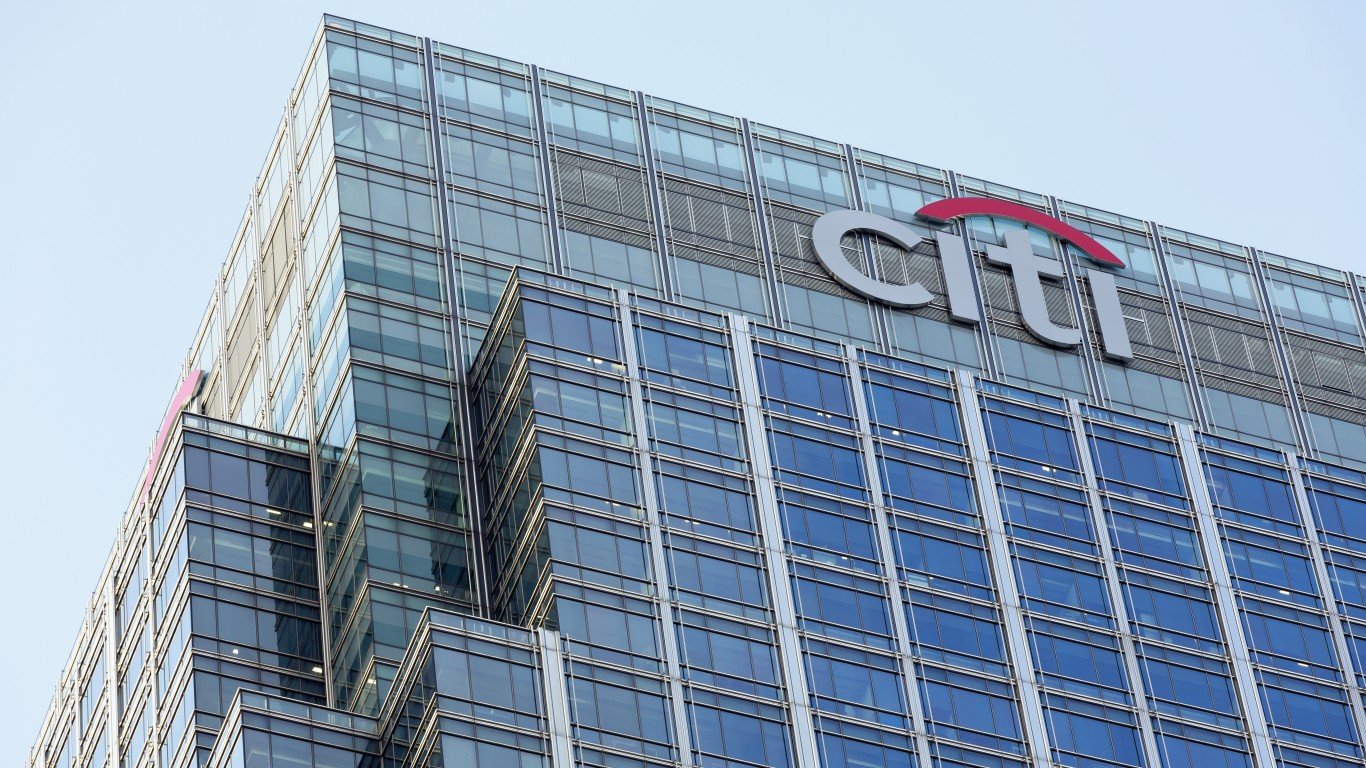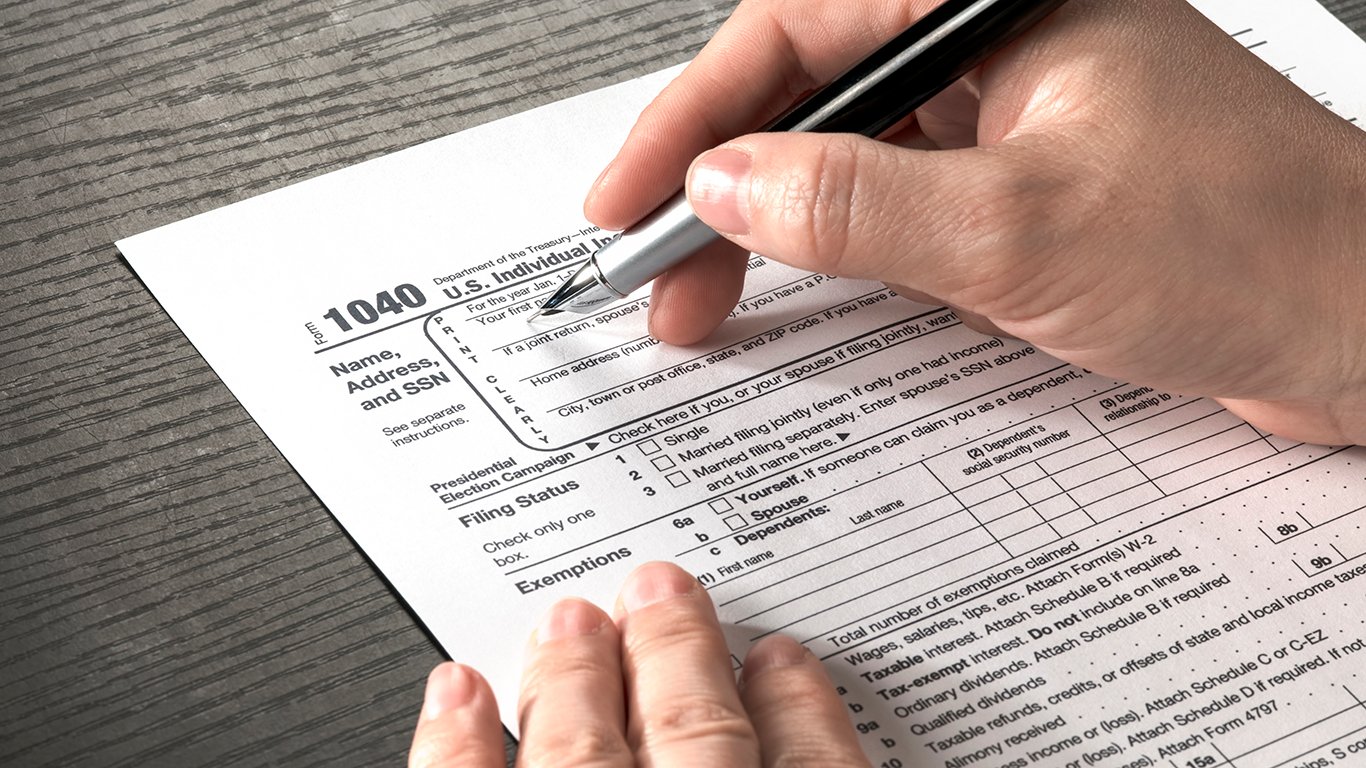

There has been an incredible outperformance of growth over value in recent years. When companies leading the internet and cloud, smartphones and computing, are leading the new American economy in a pandemic, it’s hard to convince investors to look at some of the boring cyclical stocks that are classified as “value stocks.”
However, nothing lasts forever, and this finally may be the case now that the stock market’s growth darlings saw their value brutally punished in September. One simple way that value stock buyers evaluate a company’s true value is by traditional book value. In short, this is what the assets are worth on a net basis after backing out 100% of a company’s debt and other liabilities that it must pay.
24/7 Wall St. has screened the S&P 500 financial sector for the financial companies trading at the deepest discounts to their stated book values. This may be different from a screen against tangible book values, because in a break-up scenario it’s a lot harder to assign values to trade names, values of past acquisitions, patents and trademarks and other intangible assets. Still, the stated book value is the most common used as a starting point by value stock investors.
It turns out that many key stocks are valued handily under their stated book values. This does not mean that every analyst would call these stocks “screaming buys” or anything of the sort. Some discounts to book value are because of challenging business conditions. In other cases, it is because that book value is expected to keep declining, or perhaps the company is losing money or not operating as well as peers.
In the financial sector in particular, low interest rates are driving down bank and long-term insurance earnings alike. The low rates make new long-term life insurance policies more expensive due to lower expected rates of return for the decades ahead (i.e., 1.42% for the 30-year Treasury bond yield). Banks also face more credit losses than were expected a few months ago, and higher inflation with a promise of rates near 0% for a long time will eat into their real returns.
In a Finviz screen, we evaluated discounts to book value and trading history, as well as the Refinitiv consensus analyst price targets. We also included some news developments or other color for trends, and we gave a look at what 2019 earnings looked like to see where these would be valued at current prices had the recession not come on so strongly.
Remember that any book value analysis for value investors is not meant to imply that the stocks have bottomed or that their book values will rise. Some financial stocks have continued to underperform and their stock charts are not exactly pretty. Some of the book values also should be expected to trend lower in the quarters ahead.
1. Lincoln National: 0.29 Times Book Value
Lincoln National Corp. (NYSE: LNC) is a carrier of multiple insurance and retirement businesses under the Lincoln umbrella. It caters to annuities, retirement plan services, life insurance and group protection. One issue that has come into play is that its dividend can be under risk, even though the company is expected to post earnings gains in 2020 and 2021. The economy was so fragile in 2009 that Lincoln slashed its dividend to a penny per quarter, and the dividend is now only back to the pre-Great Recession levels of more than a decade ago.
Lincoln National closed at $32.05 on Monday, in a 52-week range of $16.11 to $62.95. It has a market cap of $6.3 billion, and the current dividend yield is 5.2%. To figure where normalized earnings might go back to in the future, note that the company reported $6.71 in EPS for the 2019 full year, and that would value it at 4.8 times past earnings.
2. Unum Group: 0.32 Times Book Value
Unum Group (NYSE: UNM) looks cheap, and many investors will be quick to hope that the insurer’s earnings will hold up. While it is down from a high well above $50 a share in late 2017, the stock actually is lower than it was after the 2009 market recovery boosted its shares. It also comes with a monster dividend, but Unum operates insurance (financial protection) in the United States and internationally in the form of disability, life, closed block, death and dismemberment and other products.
Unum Group closed at $17.08 on Monday, in a 52-week range of $9.58 to $31.32. It has a market cap of $3.5 billion. The insurance carrier also has a current dividend yield of 6.9%. To figure where normalized earnings might go back to in the future, note that the company reported $5.44 in EPS for the 2019 full year, and that would value it at 3.2 times past earnings.
Thank you for reading! Have some feedback for us?
Contact the 24/7 Wall St. editorial team.
 24/7 Wall St.
24/7 Wall St.


